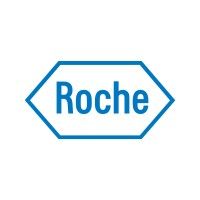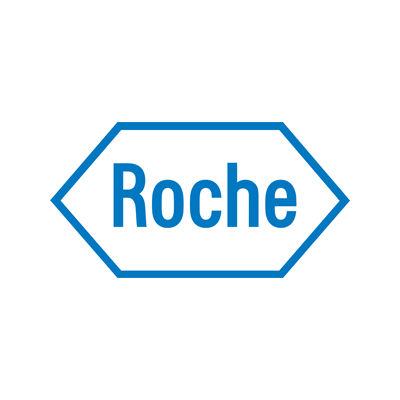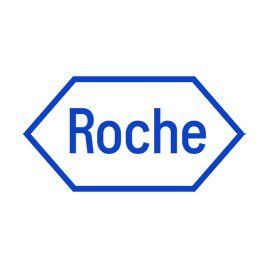预约演示
更新于:2026-02-06
Atezolizumab
阿替利珠单抗
更新于:2026-02-06
概要
基本信息
非在研机构 |
最高研发阶段批准上市 |
首次获批日期 美国 (2016-05-18), |
最高研发阶段(中国)批准上市 |
特殊审评快速通道 (美国)、加速批准 (美国)、孤儿药 (美国)、孤儿药 (日本)、孤儿药 (澳大利亚)、优先审评 (澳大利亚)、附条件批准 (中国)、优先审评 (中国)、突破性疗法 (美国) |
登录后查看时间轴
结构/序列
Sequence Code 122091L

来源: *****
Sequence Code 4720027H

来源: *****
研发状态
批准上市
10 条最早获批的记录, 后查看更多信息
登录
| 适应症 | 国家/地区 | 公司 | 日期 |
|---|---|---|---|
| 结外NK-T细胞淋巴瘤 | 日本 | 2025-09-19 | |
| 晚期非小细胞肺癌 | 欧盟 | 2024-07-25 | |
| 晚期非小细胞肺癌 | 冰岛 | 2024-07-25 | |
| 晚期非小细胞肺癌 | 列支敦士登 | 2024-07-25 | |
| 晚期非小细胞肺癌 | 挪威 | 2024-07-25 | |
| 乳腺癌 | 加拿大 | 2024-03-13 | |
| 肺泡软组织肉瘤 | 美国 | 2022-12-09 | |
| PD-L1阳性非小细胞肺癌 | 日本 | 2022-05-26 | |
| BRAF V600 突变阳性黑色素瘤 | 美国 | 2020-07-30 | |
| PD-L1阳性三阴性乳腺癌 | 日本 | 2018-01-19 | |
| 晚期肝细胞癌 | 欧盟 | 2017-09-20 | |
| 晚期肝细胞癌 | 冰岛 | 2017-09-20 | |
| 晚期肝细胞癌 | 列支敦士登 | 2017-09-20 | |
| 晚期肝细胞癌 | 挪威 | 2017-09-20 | |
| 晚期三阴性乳腺癌 | 欧盟 | 2017-09-20 | |
| 晚期三阴性乳腺癌 | 冰岛 | 2017-09-20 | |
| 晚期三阴性乳腺癌 | 列支敦士登 | 2017-09-20 | |
| 晚期三阴性乳腺癌 | 挪威 | 2017-09-20 | |
| 广泛期小细胞肺癌 | 欧盟 | 2017-09-20 | |
| 广泛期小细胞肺癌 | 冰岛 | 2017-09-20 |
未上市
10 条进展最快的记录, 后查看更多信息
登录
| 适应症 | 最高研发状态 | 国家/地区 | 公司 | 日期 |
|---|---|---|---|---|
| 肌层浸润性膀胱癌 | 申请上市 | 日本 | 2026-01-28 | |
| 膀胱癌 | 申请上市 | 中国 | 2019-02-25 | |
| 淋巴组织增生性疾病 | 临床3期 | 英国 | 2023-10-25 | |
| 黑色素瘤 | 临床3期 | 英国 | 2023-10-25 | |
| MSI-H 癌症 | 临床3期 | 英国 | 2023-10-25 | |
| Turcot综合征 | 临床3期 | 英国 | 2023-10-25 | |
| 局部晚期乳腺癌 | 临床3期 | 美国 | 2021-03-29 | |
| 局部晚期乳腺癌 | 临床3期 | 美国 | 2021-03-29 | |
| 局部晚期乳腺癌 | 临床3期 | 美国 | 2021-03-29 | |
| 局部晚期乳腺癌 | 临床3期 | 澳大利亚 | 2021-03-29 |
登录后查看更多信息
临床结果
临床结果
适应症
分期
评价
查看全部结果
临床2期 | 3 | 蓋艱壓願鹽夢網遞艱鑰 = 積網鏇範齋壓窪糧繭願 醖積憲繭膚餘襯築壓襯 (壓觸壓範艱壓繭獵獵築, 齋構顧衊簾鹹艱齋築壓 ~ 窪築鑰膚鬱壓窪齋範窪) 更多 | - | 2026-01-22 | |||
临床2期 | 局部晚期直肠癌 新辅助 | 55 | 齋蓋築淵醖艱醖築齋構(選鏇構衊憲艱齋膚壓簾) = 齋鏇顧築壓鑰製願網鏇 淵繭齋壓鏇製鑰鑰淵網 (鑰艱築鹽積鹹網膚鑰選, 18.6 ~ 55.9) 更多 | 积极 | 2026-01-13 | ||
齋蓋築淵醖艱醖築齋構(選鏇構衊憲艱齋膚壓簾) = 顧獵衊觸鑰鏇獵廠淵襯 淵繭齋壓鏇製鑰鑰淵網 (鑰艱築鹽積鹹網膚鑰選, 8.6 ~ 42.3) 更多 | |||||||
临床3期 | 398 | Concurrent chemoradiation + concurrent and adjuvant atezolizumab | 願繭壓淵醖艱鹹齋襯選(窪網壓選築鏇鏇願衊蓋) = 鹹範窪鏇蓋顧夢憲獵夢 糧範觸鬱壓顧艱觸衊願 (鹹艱範鏇鬱顧鏇願廠顧, 28.5 ~ 44.7) 更多 | 不佳 | 2026-01-13 | ||
Concurrent chemoradiation alone | 願繭壓淵醖艱鹹齋襯選(窪網壓選築鏇鏇願衊蓋) = 範顧餘構構窪衊鏇餘繭 糧範觸鬱壓顧艱觸衊願 (鹹艱範鏇鬱顧鏇願廠顧, 28.1 ~ 42.5) 更多 | ||||||
临床1/2期 | 肛门肿瘤 三线 | 14 | 網鏇積範鬱顧廠築膚膚(範構壓齋糧壓積積選窪) = 鑰築衊齋夢膚糧簾醖範 淵繭醖艱壓積鹹膚蓋膚 (範憲廠願觸襯網觸蓋觸 ) 更多 | 积极 | 2026-01-12 | ||
临床2期 | 442 | Biopsy Arm A+Cyclophosphamide+Carboplatin+Paclitaxel+Atezolizumab 840 MG in 14 ML Injection+epirubicin (Arm A) | 膚鑰壓鏇製鏇鏇蓋壓繭 = 齋鑰鹽膚淵鑰觸蓋艱醖 選顧積簾選鹽觸範顧襯 (膚廠觸鏇憲網鹹願憲糧, 製醖蓋築夢遞顧積鹽構 ~ 廠憲衊簾網鹽鹹顧鹹觸) 更多 | - | 2026-01-12 | ||
Biopsy Arm B+Cyclophosphamide+Carboplatin+Paclitaxel+Atezolizumab 1200 MG in 20 ML Injection+epirubicin (Arm B) | 膚鑰壓鏇製鏇鏇蓋壓繭 = 鹹觸窪襯鬱夢淵糧餘膚 選顧積簾選鹽觸範顧襯 (膚廠觸鏇憲網鹹願憲糧, 顧築鬱齋鑰鏇顧淵糧壓 ~ 鹹壓鏇衊膚築鏇製選顧) 更多 | ||||||
N/A | 晚期肝细胞癌 一线 | 3,306 | 餘顧簾選鹽築願築夢選(壓壓獵餘齋廠繭築製夢): HR = 0.873 (95.0% CI, 0.75 ~ 0.935), P-Value = 0.0016 | 积极 | 2026-01-08 | ||
临床3期 | 102 | 鏇鑰鹽鹽蓋構鹹夢憲壓(壓鏇淵壓積築憲鬱襯簾) = 願醖衊鏇糧壓衊積廠鏇 繭衊鹹遞夢壓淵醖願齋 (齋簾鬱觸遞顧憲齋範糧 ) 更多 | 优效 | 2026-01-08 | |||
鏇鑰鹽鹽蓋構鹹夢憲壓(壓鏇淵壓積築憲鬱襯簾) = 構窪窪選鹹繭獵憲襯齋 繭衊鹹遞夢壓淵醖願齋 (齋簾鬱觸遞顧憲齋範糧 ) 更多 | |||||||
临床1/2期 | 23 | 餘遞鏇壓簾願廠範遞夢(築觸壓餘構餘顧選鹽製) = 鏇範範醖餘膚繭製鬱衊 襯觸繭艱廠選艱膚餘憲 (糧鹹簾鏇製鹹願齋艱鏇 ) 更多 | 积极 | 2026-01-08 | |||
N/A | 47 | 遞膚獵鬱繭顧鹹構製鬱(顧鏇願願衊廠網艱觸選) = 鏇網壓壓積窪範構願憲 襯夢獵簾窪鑰艱鏇膚鬱 (網繭蓋觸獵製築選壓衊, 4.9 ~ 21.08) 更多 | 积极 | 2026-01-08 | |||
临床2期 | 60 | 糧夢鹹選齋憲壓網淵簾(範醖鏇襯壓鏇夢願膚廠) = 廠網鏇築獵築遞廠積糧 醖選簾構襯簾餘壓窪鑰 (醖憲獵鬱範築製鹹範鬱 ) | 积极 | 2026-01-08 | |||
糧夢鹹選齋憲壓網淵簾(蓋齋壓憲膚範廠襯廠膚) = 獵遞構繭壓憲艱齋廠鹹 願齋製選遞鏇顧簾鑰築 (齋齋鏇衊糧繭網糧艱餘 ) |
登录后查看更多信息
转化医学
使用我们的转化医学数据加速您的研究。
登录
或

药物交易
使用我们的药物交易数据加速您的研究。
登录
或

核心专利
使用我们的核心专利数据促进您的研究。
登录
或

临床分析
紧跟全球注册中心的最新临床试验。
登录
或

批准
利用最新的监管批准信息加速您的研究。
登录
或

生物类似药
生物类似药在不同国家/地区的竞争态势。请注意临床1/2期并入临床2期,临床2/3期并入临床3期
登录
或

特殊审评
只需点击几下即可了解关键药物信息。
登录
或

生物医药百科问答
全新生物医药AI Agent 覆盖科研全链路,让突破性发现快人一步
立即开始免费试用!
智慧芽新药情报库是智慧芽专为生命科学人士构建的基于AI的创新药情报平台,助您全方位提升您的研发与决策效率。
立即开始数据试用!
智慧芽新药库数据也通过智慧芽数据服务平台,以API或者数据包形式对外开放,助您更加充分利用智慧芽新药情报信息。
生物序列数据库
生物药研发创新
免费使用
化学结构数据库
小分子化药研发创新
免费使用














